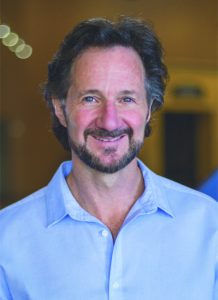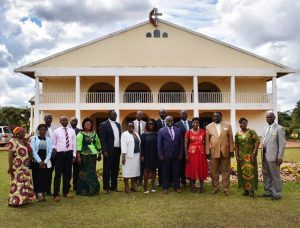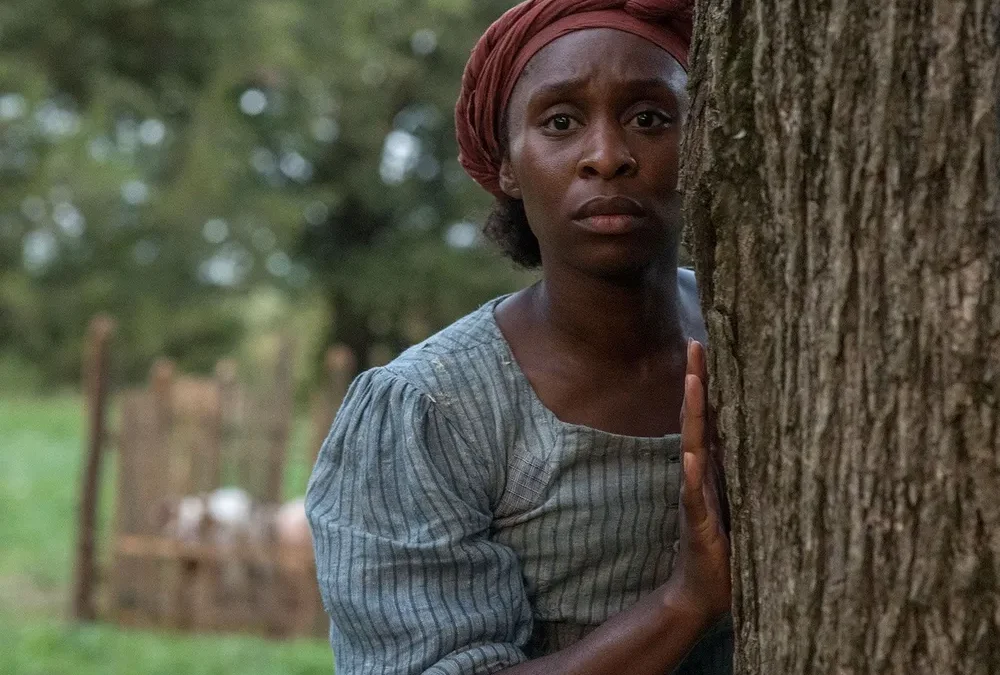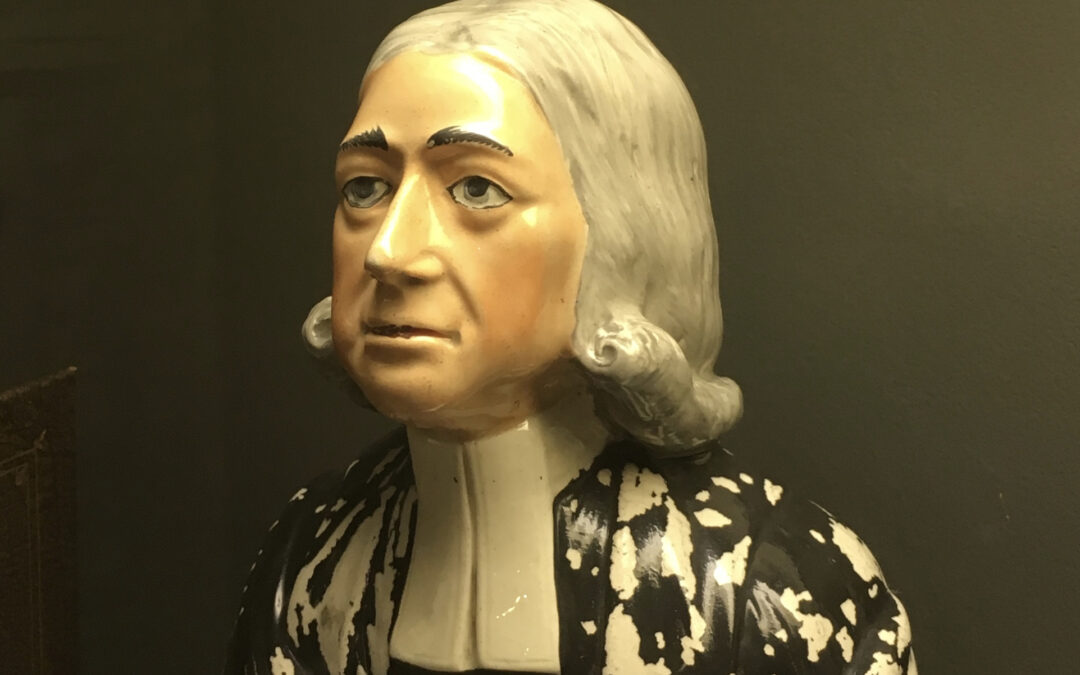
by Steve | Sep 3, 2019 | Magazine, Magazine Articles, September-October 2019
 By Rob Renfroe –
By Rob Renfroe –
Which is more important: what you think or how you think? Don’t spend too much time working on an answer. Both are critical. As orthodox Christians we rightly emphasize that what we believe is essential. But people can believe all the right doctrines and still not live a joyful life that makes a difference in the world. That’s because how we think makes a difference in our marriages, at our work, in difficult times, and in all our relationships.
How we think will also make a difference in finding a faithful way forward for evangelicals within The United Methodist Church.
It’s normal for many people to think pessimistically. “Things are bad and they’re going to get worse. My problems are big and they’ll only get bigger. Everyone’s against us. Why try? There’s nothing we can do to change things.”
Other people tend to think judgmentally. They see a problem and their first reaction is to find someone to blame – their spouse, their boss, politicians, the bishops. They spend their emotional energy looking back to fix the blame instead of looking forward to fix the problem.
Still others think naively. “It’ll work out. Things always do.” No, they do not. Kids do not always get off drugs. They need parents who will pray and fight for them. Marriages do not always get better. They need two people who will do the hard work of making a troubled relationship good again. Finances do not always work themselves out. People must make a plan and be disciplined. It’s naïve to think otherwise.
I hear these ways of thinking in the conversations with people about the future of the UM Church. Some of us are pessimistic about our future and what we can do to change it – some of us have even given up. Others are judgmental and angry, consumed with blaming whoever they see as the villain. And still others are naïve – like an ostrich with its head in the sand, they refuse to acknowledge the deep trouble we are in and do not feel a need to try to make things better.
What we believe may be right. But if how we think is wrong, we will never be part of the solution. How do we need to think to make a difference and be used by God – whether it’s in the lives of others or in bringing about the exciting future God has for faithful Wesleyan Christians?
First, we must think bottom line. More people know what they don’t want out of life than know what they do want. They cannot tell you their bottom line. They cannot tell you what their purpose is, what their goals are, or what they believe they are on earth to accomplish. What happens when we do not have a bottom line? Not much. We have no direction, no purpose, no passion, and no power.
One reason Paul was so effective in spreading the Gospel in the first century is that he knew his bottom line: “I want to know Christ and the power of his resurrection and the fellowship of sharing in his sufferings” (Philippians 3:10). Bottom line, Paul said he was here to grow closer to Jesus, to open his life to the power of God so that souls would be saved and lives would be changed, and to spend his life for the Gospel – even if it required sacrifice and suffering.
Paul’s bottom line gave him a purpose which birthed a passion that generated a power to keep going in spite of persecution and suffering – and the world did not change him; he changed the world.
When thinking about our denomination’s future, what’s your bottom line for a way forward for evangelical Wesleyans? For me, it’s being united with others who love Jesus, trust the Scriptures, have a missional passion for the lost and the poor, and want to embrace all people without letting go of the church’s historical sexual ethic. My bottom line does not care about proving I’m right or villainizing those who see things differently. I have no desire to control or prosecute others. My primary concern is not that we evangelicals receive every last penny of the denominational assets we deserve. My bottom line is to end the fighting and get on with being a church that changes the world.
Second, we need to think positively. Here I am not referring to “the power of positive thinking” but to the faith-filled way of thinking that characterized Paul when he wrote, “I can do all things through him who strengthens me” (Philippians 4:13).
Do you remember how David responded when Saul said he was too young to fight and defeat the Philistine giant Goliath? “When a lion or a bear came and carried off a sheep, I went after it, struck it, and rescued the sheep. Your servant has killed both the lion and the bear, and this Philistine will be like one of them” (1 Samuel 17:34-36). David told Saul he knew he could defeat Goliath because he had faced the lion and the bear and he had won.
When your life becomes difficult, you need to remember the lion and the bear. You have faced huge problems and overwhelming challenges before. You have undergone terrible trials and you have been filled with fear in the past. And you overcame. Do not underestimate your own strength or resourcefulness.
Shifting our thinking to United Methodism, evangelicals within our denomination have been struggling against the influence of liberal and progressive theologies for decades. Most of our seminaries, many of our bishops, and leaders of our boards and agencies have tried to belittle, undercut, or misrepresent a traditional theology and intimidate those who promote it. The full force of the institutional church came against us in St. Louis. But for 50 years we have stood together, and we are still here. Those who have gone before us have been faithful and courageous in the face of the lion and the bear. That’s our heritage, and that’s who we are.
But there was more to David’s answer to Saul than self-confidence. Here’s the rest of his answer to Saul. “The Lord who delivered me from the paw of the lion and the paw of the bear will deliver me from the hand of this Philistine” (1 Samuel 17.37). David had a deep confidence in God – he believed that the God who had fought for him in the past would fight for him in the future.
I do not know what the outcome of General Conference 2020 will be. But I do know that God wants a church that is faithful to his word, committed to his Son, and unashamedly proclaims the Good News of salvation. Will God keep the UM Church together, will he birth two or three new entities, or will he do something different? We will see. But we can be confident and positive that the same God who has kept our global denomination from caving to the culture in the past will be our deliverer and our defender in the future.
Finally, we need to think simply – not simplistically, but simply. It’s easy to obsess over every possibility, plan out complicated strategies to counteract what others might or might not do, or get lost in the details of the challenge we are facing. When we do, our problems become overwhelming. The internal conversation that goes on in the minds of people who get stuck in life is full of statements that begin with “what about,” “but if this happens,” and “here’s why that will never work.” It’s a complicated and confusing world inside their heads and they often get stuck inside their own thinking.
What’s needed is a mentality that says, “Even if I don’t have it all figured out, I will take a simple step forward in the direction of my bottom line.” Nothing great will ever be accomplished if every possible objection must first be solved and every theoretical eventuality must be addressed before we move forward. That’s true of the challenges we face as individuals and as a denomination.
Take a simple step forward – and you are moving. Take a simple step forward – and you are closer to your goal. Put enough simple steps in the right direction together and a solution will appear and you will overcome.
Our plan for a faithful UM Church is simple. Find nonevangelical partners who want to stop the fighting, who do not want to repeat the ugliness of St. Louis, and create legislation together that leads to an amicable parting of the ways.
Simple is not always easy. Sometimes it’s hard work and often there are real challenges. But it’s not complicated. If there are enough progressives and centrists of good will who want the best for the church, we will find them and we will work with them and there will be respectful separation. It is that simple. Not easy, but not complicated, either.
Thinking about the bottom line, we should know what we want. We need to think positively and act in faith, simply taking the next faithful step forward. That’s how we move forward.

by Steve | Sep 3, 2019 | Magazine, Magazine Articles, September-October 2019

The Zimbabwe Episcopal delegation stand in front of Joli Site Church in Galilee during their visit in the South Congo Episcopal Area. Photo by Chenayi Kumuterera, UM News.
By Chenayi Kumuterera (UMNS) –
KOLWEZI, Congo – Inspired by the story of Barnabas (Acts 4:36), who sold his land and gave the money to the early apostles, members of Jerusalem Francophone United Methodist Parish donated their salaries, pledges, and other gifts to construct Centennial Memorial Temple.
Accommodating more than 5,800 people, the temple is the largest structure of Joli Site Church in Galilee District, South Congo Conference. Construction took seven years. Their contributions were worth the equivalent of $2.5 million. (The average annual income in the Congo is $400.)
The Rev. Albert Masengo Tshiwewa leads the French-speaking congregation, assisted by the Rev. Jacques Mutond Tshibang, the Rev. Robert Mwape Kapembwa, the Rev. Eugene Kalenga Mashawu, the Rev. Isaac Tshonga Mandjiata, and the Rev. Gilbert Mwanza Kasongo.
“It all started with a collective awareness of trying to build a temple where we would be comfortable praying and worshipping because of the growing numbers of worshippers each Sunday,” said Gomer Chamusa Kasweshi, lay leader. “The administrative council at that time had decided to save money and to call people of goodwill to contribute to the purchase of land at the entrance of the city on the side of the international airport of Luano.” Now, he noted, “we are focused on raising funds to finalize the ceiling and continue with other social projects such as education and health and the construction of pastoral homes.”
When the land was acquired, the administrative council set up a construction commission of volunteers and other committed people to contribute to the project. They were asked to raise $100,000 from voluntary contributions. Competitions and other fundraising strategies were developed.
“Joli Site Church was built through collection of funds from members of the local church, commitment of each member of the construction committee to give a fixed amount each month and commitment of parish families to offer their monthly salaries,” said Masengo, senior pastor. “Other families were committed to donating all the doors of the church,” he added. “Other families pledged to pay part of the bill of the contractor who had fixed the roof. This was amazing.”
At the laying of the first stone, the former governor of Katanga, His Excellency Moise Katumbi Chapwe, who is not a United Methodist, contributed 5,000 bags of cement to the project.
“I [have] witnessed state-of-the-art buildings (sanctuaries, parsonages, offices, and fellowship halls) built by individuals and families,” said the Rev. Gift Machinga, chair, Zimbabwe East Conference Board of Discipleship. “The biggest and most beautiful church, Joli Site in Galilee District, is a case in point. This is the highest level of giving to be witnessed anywhere.”
Simon Mafunda, Zimbabwe East Conference lay leader said the church is “a testimony of great vision and foresight.”
Chenayi Kumuterera is a communicator with the Zimbabwe West Conference.

by Steve | Sep 3, 2019 | Magazine, Magazine Articles, September-October 2019
Harriet: AME Zion Heroine on Big screen
By Courtney Lott –
Harriet Tubman, the fearless conductor of the Underground Railroad, escaped slavery in 1849. She found refuge at a nearby farm and eventually made her way to Pennsylvania. Marveling at her newfound freedom, she looked at her hands to see if she was the same person. “There was such a glory over everything,” Tubman said. “The sun came up like gold through the trees and over the fields, and I felt like I was in Heaven.”
But Tubman was never satisfied with her own freedom. She worked multiple jobs, lived frugally, and saved her wages to rescue her own family. Citing God’s rescue of his people from Egypt, Tubman swore she would allow nothing to make her stray from her God-given task to fight against slavery.
“I was free,” Tubman said, “and they should be free also; I would make a home for them in the North, and the Lord helping me, I would bring them all there. Oh, how I prayed then, lying all alone on the cold, damp ground; ‘Oh, dear Lord,’ I said, ‘I ain’t got no friend but you. Come to my help, Lord, for I’m in trouble!’”
Tubman made 19 return trips to the South to save others from slavery. Listening for the voice of God for guidance, she only went where she felt he was leading. Abolitionist Thomas Garrett said he had never met anyone with more confidence in God’s voice. Other abolitionists cited God as the source of her strength, and claimed that she trusted him as protector and deliverer of the weak.
To protect her “passengers” as well as her ultimate mission, if a slave considered returning to his master, Tubman would hold a gun to their head and ask them to reconsider. A slave who went back could easily give away the others and risk ending the entire operation. “…if he was weak enough to give out,” Tubman said, “he’d be weak enough to betray us all and all who had helped us, and do you think I’d let so many die just for one coward man?” In spite of this, Tubman said she never had to shoot anyone she helped.
Throughout her work with the Underground Railroad, Tubman freed over 300 slaves. In the Civil War, Tubman worked as a laundress, nurse, and a spy for the Union army. She was also the first woman to lead an armed expedition in the war. Though she received accolades from the government, Tubman died in poverty in 1913, in her home in Auburn, New York – a property she left to the African Methodist Episcopal (AME) Zion Church.
This fall, Focus Features film Harriet will be in theaters. Starring Tony Award Winning Actress, Cynthia Evivo (Widows, Bad Time at the El Royale) as Tubman and directed by Kasi Lemmons (Luke Cage, Talk to Me), Harriet will follow Tubman’s escape from slavery and her work with the Underground Railroad. Make sure to check out this movie.
Courtney Lott is the editorial assistant at Good News. Photo: Cynthia Evivo as courageous abolitionist Harriet Tubman in Harriet. Image via Focus Features.

by Steve | Sep 3, 2019 | Magazine, Magazine Articles, September-October 2019

Art by John Stuart, aka Stushie.
By Steve Beard –
In the grand scheme of things, it may seem like an insignificant victory – but Eddie O’Neill sees it from a different vantage point. In July, Sunday services finally were begun for Christian prisoners at a medium-security London mental health unit – and the services included communion.
O’Neill was transferred to the mental health facility in January 2018, and discovered there were no Sunday services for Christians. His requests were ignored by administrators – at the same time that regular Friday prayers were being organized for Muslim in-patients.
According to the Church Times in England, O’Neill, 57 years old, has been in prison for ten years, and became a Christian behind bars. He testifies that he “grew up in care, and was abused by the system as a child and came into the adult world not knowing what God, family, and love are.” O’Neill is, by self-description, “a damaged person, a convicted criminal, but the only true redemption I have found in my life is hope in Jesus Christ.”
The facility eventually relented and provided a “spiritualist” to provide the sacraments. Without utilizing an appropriate liturgy, the spiritualist allegedly administered holy communion by merely saying, “Here you go.”
Eighteen months later, the injustice was rectified this past July when communion with the proper liturgy was offered. The Christian Legal Centre, who acted as O’Neill’s advocate, said that all the Christian patients wanted “was to have a service and holy communion on a Sunday, which recognized the hope they had in Jesus Christ, and to exercise their faith in him. This was not being taken seriously, and what the [mental health] centre was providing was wholly inappropriate ….”
For his crime, O’Neill is rightly serving his term in the hands of justice. Communion, at the same time, rightly wraps him in the redemptive arms of grace.
The Lord’s Supper, as it is called, has been controversial from the very beginning. Broken bodies and shed blood give ample room for justifiable misunderstanding and unjustified hostility. To those uninitiated in the faith, the ancient Christian ritual appears beyond strange and seemingly-Gothic. Through the eyes of faith, however, the sacraments are – to borrow from Augustine – an “outward, visible sign of an inward, invisible grace.”
In one sermon, Methodism’s founder John Wesley called communion “the grand channel whereby the grace of his Spirit was conveyed to the souls of all the children of God.” On another occasion, he said, “As our bodies are strengthened by bread and wine, so are our souls by these tokens of the body and blood of Christ. This is the food of our souls….”
I understand Wesley’s phraseology. Now more than ever, I cognizantly look forward to the first Sunday of every month when communion is served at my church. At this juncture in my spiritual life, the most vibrant 30 seconds of each month is when someone from my church looks me eye-to-eye and says, “The Body of Christ broken for you” and offers me the Bread of Life. Moments later, another church member says, “The Blood of Christ shed for you.” There, I dip into the Cup of Salvation.
Long ago at the Last Supper, Jesus said, “Do this in remembrance of me.” And, I do. It is one of his commands I faithfully, eagerly, and desperately obey. And something stirs. More than any other element on a Sunday morning, communion helps me to detect or perceive the presence of Christ. He is here. I recognize that communion is, for many of my Christian friends, more obligatory than sensory. We are all wired differently. But, like the disciples on the road to Emmaus, communion mysteriously opens my eyes to Jesus.
Last year, I wiped away tears as I read the testimony of another prisoner who had been cut off from the Bread and Cup. While there was a volunteer-led Bible study at his prison, there was not a worship service and no Eucharist.
His Lutheran pastor tried many times to bring communion but was inexcusably thwarted as he was given the institutional runaround. Lee A. Moore was reduced to Sunday mornings spent communing “in spirit” with his congregation as he followed the liturgy from worship bulletins that his pastor sent. With “wine” made from water and grape jelly and a slice of bread from the mess hall, he joined – in the isolation of the prison – in sharing the body and blood of Christ.
“It may seem uncouth or even foolish to join in communion remotely, like a child having pretend tea in plastic cups, but these were vital moments of grace that preserved me in my time of desperate need,” Moore wrote in a moving article for Christianity Today.
He was eventually befriended by another prisoner who invited him to the Roman Catholic service. Although he was interested, Moore was vexed about the etiquette and asked about the rule banning non-Catholics from participation. The man smiled and put his hand on Moore’s shoulder. “This is prison,” he said. “Do you really think God cares if you steal some grace?”
The song of invitation at the service included these lines: “I am hope for all who are hopeless, I am eyes for those who long to see./ In the shadows of the night, I will be your light, come and rest in me.”
When the elements were offered, Moore held out his hands “overlapped and open to show both emptiness and the expectation of receiving something,” he wrote. He described feeling like a beggar “scrounging for the body of Christ.”
The song continued: “I am the strength for all the despairing, healing for the ones who dwell in shame./ All the blind will see, the lame will all run free, and all will know my name./ Do not be afraid, I am with you. I have called you each by name./ Come and follow me, I will bring you home. I love you and you are mine.”
The history of the Church has been punctuated with spirited and sometimes grievous debates and disagreements about communion. As for his prison experience, Moore was unofficially granted special permission from the priest to receive the elements. In the contentious history of questions surrounding communion, there are three undeniable factors we can agree upon. First, “Jesus said to do this,” writes Moore. Second, “His grace is available to us in a special way when we do this.” And lastly, “all our human attempts at describing this holy mystery fall short. We are not worthy. But Christ still bids us all to come to the table of grace.”
Even the great novelist and lay theologian C.S. Lewis struggled to describe what actually takes place during the Lord’s Supper. “I find no difficulty in believing that the veil between the worlds … is nowhere else so thin and permeable to divine operation,” he wrote. As the imaginative author of The Chronicles of Narnia, Lewis poetically described it as the “big medicine” that was like a “hand from the hidden country” that touches not only our body, but also our soul.
Take, eat. Take, drink. It is the food for your soul.
Steve Beard is the editor of Good News.

by Steve | Sep 3, 2019 | Magazine, Magazine Articles, September-October 2019

Artistic rendering of Michelangelo’s “Creation of Adam” in the Sistine Chapel.
By Sandra Richter –
The Bible, in all its parts, is intended to communicate to humanity the realities of redemption. Over the centuries, the church has stumbled when it has forgotten this truth, and has thereby, ironically, damaged the authority of the book from which it has drawn its life.
We forget that this book was cast upon the waters of history with one very specific, completely essential, and desperately necessary objective – to tell the epic tale of God’s ongoing quest to ransom his creation. And to, thereby, give each generation the opportunity to know his amazing grace. The Bible is the saga of Yahweh and Adam, the prodigal son and his ever gracious heavenly father; humanity in their rebellion and God in his grace. This narrative begins with Eden and does not conclude until the New Jerusalem is firmly in place. It is all one story. And if you are a believer, it is all your story.
Two-thirds of the story of redemption is known to Christians as the Old Testament. Yet in the decades that I have been teaching Bible, I have found that most Christians, if allowed to answer honestly, might be tempted to dub this section of the Bible the “unfortunate preface” to the part of the Bible that really matters. So why is it that most laypeople struggle with the study of the Old Testament?
1. Most Christians have not been taught that the story of the Old Testament is their story. Rather, they have been encouraged to think that knowledge of the Old Testament is unnecessary to New Testament faith. Worse, many have been taught that the God of the Old Testament is somehow different from the God of the New; that unlike Christ, Yahweh is a God of judgment and wrath. So these folks stick with the part of redemption’s story that seems to include them – the New Testament.
2. The “great barrier.” Since the narrative of the Old Testament happened long, long ago and far, far away, it can be very challenging to get past the historical, linguistic, cultural, and even geographical barriers that separate us from our ancestors in the faith. As a result, to the typical twenty-first-century Christian, the God of Israel seems foreign, his people strange.
If our goal is to know our own story, then we first have to come to understand the characters who populate the Old Testament: who they were, where they lived, what was important to them. The heroes of the Old Testament must be brought into focus so that we can see them as real people who lived in real places and struggled with real faith, just as we do.
3. The Dysfunctional Closet Syndrome. Everyone has a dysfunctional closet somewhere in their lives. The closet is crammed full of clothes slipping from the hangers, accessories dangling from the shelves, shoes piled in disarray on the floor.
The average Christian’s knowledge of the Old Testament is much the same. Dozens of stories, characters, dates, and place names. Years of diligent acquisition. Yet these acquisitions all lie in a jumble on the metaphorical floor. A great deal of information is in there, but as none of it goes together, the reader doesn’t know how to use any of it. Rather, just like the dysfunctional closet, the dates, names, and narratives lie in an inaccessible heap. Thus the information is too difficult, or too confusing, to use.
The end result is that most decide that the Old Testament is just too hard and give their attention to the New Testament where there is some hope of memorizing the characters, places, and dates. Until a believer is able to organize what they know about the Old Testament meaningfully, they cannot use it.
Contrary to popular opinion, the Old Testament is not a hodgepodge of unrelated materials thrown together by some late, uninformed redactor. Nor has it come to us as the result of an empty-headed secretary copying down verbatim some mysterious message. No, the Old Testament writers were themselves theologians, and, under the inspiration of the Holy Spirit, they have written for us a carefully formatted and focused piece of literature in which there exists an intentional, theological structure.
Our objective as Christians is to understand the story of redemption, the Bible. More than anything else, we want to hear the words of the biblical writers as they were intended and claim their epic saga as our own. To accomplish this, we need to get past the great barrier – that chasm of history, language, and culture that separates us from our heroes in the faith.
Different Time, Different Place

“Belovedness” by Scott Erickson (wwwscottericksonart.com).
Humans, rather than recognizing the trappings of their own culture (and that their culture may in fact be very different from someone else’s), tend to assume that other societies are just like their own. This is known as ethnocentrism and is a human perspective that is as old as the hills. As regards the Christian approach to the Old Testament, consider for example the standard depiction of Jesus in sacred Western art as a pale, thin, white man with dirty blond hair and blue (sometimes green) eyes.
These portrayals are standard in spite of the fact that we are all fully aware that Jesus was a Semite and his occupation was manual labor. So shouldn’t we expect a dark-haired man with equally dark eyes? So why is he presented in Christian art as a pale, skinny, white guy? Because the people painting him were pale, skinny, white guys!
We naturally see Jesus as “one of us” and portray him accordingly. This is not necessarily a bad thing. Rather, our close association with the characters of redemptive history allows us to see ourselves in their story. And this is as God would have it. But to truly understand their story, we need to step back and allow their voices to be heard in the timbre in which they first spoke. We need to do our best to see their world through their eyes.
The flip side of ethnocentrism is a second tendency I have come to speak of as “canonizing culture.” This is the unspoken (and usually unconscious) presupposition that the norms of my culture are somehow superior to the norms of someone else’s. Like ethnocentrism, this tendency is also as old as the human race.
But history proves to us that it is impossible to diagnose any human culture as fully “holy” or “unholy.” Human culture is always a mixed bag; some more mixed than others. And every culture must ultimately respond to the critique of the gospel.
As we open the Bible, however, we find that the God of history has chosen to reveal himself through a specific human culture. To be more accurate, he chose to reveal himself in several incarnations of the same culture. And, as the evolving cultural norms of Israel were not without flaw (rather, there was a mixture of the good, the bad, and the ugly), God did not canonize Israel’s culture. Rather, he simply used that culture as a vehicle through which to communicate the eternal truth of his character and his will for humanity. We should not be about the business of canonizing the culture of ancient Israel, either. But if we are going to understand the content of redemptive history, the merchandise that is the truth of redemption, we will need to understand the vehicle (i.e., the culture) through which it was communicated. Thus the study of the Old Testament becomes a cross-cultural endeavor. If we are going to understand the intent of the biblical authors, we will need to see their world the way they did.
Redemption
The very term redemption is culturally conditioned. It had culturally-specific content that we as modern readers have mostly missed. In fact, redemption is one of several words I have come to refer to as “Biblish” – a word that comes from the Bible, is in English, but has been so over-used by the Christian community that it has become gibberish. So what does the word redemption mean, and where did the church get it? The first answer to that question is obvious; the term comes from the New Testament.
• “Blessed be the Lord God of Israel, for He has visited us and accomplished redemption for His people” (Luke 1:68).
• “Knowing that you were not redeemed with perishable things like silver or gold from your futile way of life inherited from your forefathers, but with precious blood, as of a lamb unblemished and spotless, the blood of Christ” (1 Peter 1:18-19).
• “Christ redeemed us from the curse of the Law” (Galatians 3:13).
Okay, so the word comes from our New Testament, but what does it mean? And where did the New Testament writers get it? A short survey of the Bible demonstrates that the New Testament writers got the word from the Old Testament writers. The prophet Isaiah declares:
“But now, thus says the Lord, your Creator, O Jacob, and He who formed you, O Israel, ‘Do not fear, for I have redeemed you; I have called you by name; you are Mine!’” (Isaiah 43:1).
And where did the Old Testament writers get the word? Contrary to what we might assume, they did not lift it from a theological context. Rather, this word and the concepts associated with it emerged from the everyday, secular vocabulary of ancient Israel. “To redeem” (Hebrew gã’al) in its first associations had nothing to do with theology, but everything to do with the laws and social customs of the ancient tribal society of which the Hebrews were a part. Thus if we are to understand the term – and what the Old Testament writers intended when they applied it to Israel’s relationship with Yahweh – we will need to understand the society from which the word came.
 Israel’s Tribal Culture
Israel’s Tribal Culture
Israelite society was enormously different from contemporary life in the urban West. Whereas modern Western culture may be classified as urban and “bureaucratic,” Israel’s society was “traditional.” More specifically it was “tribal.” In a tribal society the family is, literally, the axis of the community. An individual’s link to the legal and economic structures of their society is through the family.
In Israel’s particular tribal system, an individual would identify their place within society through the lens of their patriarch’s household first, then their clan or lineage, then their tribe, and finally the nation. Even the terminology for “family” in ancient Israel reflects the centrality of the patriarch. The basic household unit of Israelite society was known as the “father’s house(hold),” in Hebrew the bêt ‘ãb. This household was what Westerners would call an “extended family,” including the patriarch, his wife(s), his unwed children, and his married sons with their wives and children. (An example of this is Rebecca’s marriage to Isaac in Genesis 24. She left her father’s household in Haran and journeyed to Canaan to marry.)
Modern ethnographic studies indicate that the Israelite bêt ‘ãb could include as many as three generations, up to twenty persons. Within this family unit, the “father’s house(hold)” lived together in a family compound, collectively farming the land they jointly owned and sharing in its produce. And those who found themselves without a bêt ‘ãb (typically the orphan, the widow, and the resident foreigner [Hebrew gēr]) also found themselves outside the society’s normal circle of provision and protection. This is why the Old Testament is replete with reminders to “care for the orphan and the widow.”
God’s way of doing things often stands in opposition to the cultural norms of our native society and redemption’s story critiques every human culture. The choice of David is particularly telling. As the eighth-born son of Jesse, David’s inheritance would have fit into a backpack. But after surveying all of Jesse’s sons (eldest to youngest, of course), God’s spokesman says “no” to those David’s society would have chosen (the eldest and the strongest) and “yes” to the one least likely in the eyes of his own community: “For I have selected a king for Myself among his sons” (1 Samuel 16:1). Indeed, “people look at the outward appearance, but the Lord looks at the heart” (1 Samuel 16:7). This choice of the unlikely leader is rehearsed many times in the Scriptures.
Jesus and his culture
Israelite culture and the concept of the family compound survived into New Testament times and serves as a backdrop to many of Jesus’ stories and teachings. Consider John 14:1-2. Just after the meal, Jesus begins telling his disciples about his impending departure and the troubles that will follow. Of course, the disciples are confused and upset. Peter asks the question on everyone’s heart: “Where are you going … and can we go with you?” (John 13:36-37). Jesus responds as follows:
“Do not let your heart be troubled; believe in God, believe also in Me. In my Father’s house are many dwelling places, if it were not so I would have told you; for I go to prepare a place for you. If I go and prepare a place for you, I will come again and receive you to Myself; that where I am, there you may be also” (John 14:1-3, NASB).
Did you notice Jesus’ vocabulary? “In my father’s house there are many dwelling places.” For generations we in the West have imposed our cultural lens upon this passage such that we have whole songs dedicated to the “mansion up over the hilltop” that is awaiting us in heaven. But what Jesus is saying to his disciples and to us is so far superior to the objectives of a consumer culture that it takes my breath away – our ultimate destination as the newly adopted children of the Father is the family compound! And Jesus, the firstborn of his Father’s household, is going back to heaven to get your four-room pillared house ready. Why? “So that where I am, there you may be also.” The goal of redemption is not a marbled mansion, but reincorporation into the bêt ‘ãb of our heavenly Father.
Restoration
In Israel’s tribal society redemption was the act of a patriarch who put his own resources on the line to ransom a family member who had been driven to the margins of society by poverty (Ruth and Boaz), who had been seized by an enemy against whom he had no defense (Lot and Abraham), who found themselves enslaved by the consequences of a faithless life (Gomer and Hosea).
Redemption was the means by which a lost family member was restored to a place of security within the kinship circle. This was a patriarch’s responsibility, this was the safety net of Israel’s society, and this is the backdrop for the epic of Eden in which we New Testament believers find ourselves.
Can you hear the metaphor of Scripture? Yahweh is presenting himself as the patriarch of the clan who has announced his intent to redeem his lost family members. Not only has he agreed to pay whatever ransom is required, but he has sent the most cherished member of his household to accomplish his intent – his firstborn son. And not only is the firstborn coming to seek and save the lost, but he is coming to share his inheritance with these who have squandered everything they have been given. His goal? To restore the lost family members to the bêt ‘ãb so that where he is, they may be also.
This is why we speak of each other as brother and sister, why we know God as Father, why we call ourselves the household of faith. God is beyond human gender and our relationship to him beyond blood, but the tale of redemptive history comes to us in the language of a patriarchal society. Father God is buying back his lost children by sending his eldest son, his heir, to “give His life as a ransom for many” (Matthew 20:28), so that we the alienated might be “adopted as sons” and share forever in the inheritance of this “firstborn of all creation.”
Sandra L. Richter is Robert H. Gundry Chair of Biblical Studies at Westmont College and a member of the Committee for Biblical Translation for the NIV. She is best known in the church for her work The Epic of Eden: A Christian Entry into the Old Testament (IVP) and her DVD curriculums (Seedbed) designed for those serious about their faith. Taken from The Epic of Eden by Sandra L. Richter. Copyright ©2008 by Sandra L. Richter. Used by permission of InterVarsity Press, P.O. Box 1400, Downers Grove, IL 60515, USA. www.ivpress.com.
The Epic of Eden is available for purchase here.
Companion video sessions to supplement her book, are also available here.

by Steve | Sep 3, 2019 | Magazine, Magazine Articles, September-October 2019
What Does it Mean to be a Wesleyan Christian?
By David F. Watson –
John Wesley (1703-1791) believed that God had raised up the people called Methodists to “reform the nation, particularly the church, and to spread scriptural holiness over the land” (“Minutes of Several Conversations”). The core of the Wesleyan/Methodist tradition is holiness.
What is holiness? It means different things to different groups of people. For Wesley, however, holiness was about transformation. We human beings, he believed, are broken, sinful creatures. Left to our own devices, we will not live in ways that honor God. In fact, we can’t honor God with our lives – at least not consistently – because we stand under the power of sin. The world is not as it should be. Human beings are not as we should be. Our minds, our hearts, our desires are disordered.
In his great mercy, God has given us a savior in Jesus Christ. When he died on the cross, Jesus made it possible for us to have peace with God and to escape the power of sin over our lives. We receive Christ into our hearts through the power of the Holy Spirit, and the Holy Spirit comes to us most readily as we seek him through practices such as reading Scripture, praying, and receiving communion. To be holy means that we are “set apart” from the world by the transforming power of God.
In many cases and places, our zeal for holiness has flagged. A renewed expression of Wesleyanism will require concerted work of retrieval. In other words, we need to recommit ourselves to some of the core beliefs and practices that characterized early Methodism. For Wesley and his followers, the Methodist movement involved a commitment to holiness lived out in several ways. Holiness was rooted in Scripture. It was lived out in community. It was facilitated by the means of grace, and it was expressed in solidarity with the poor.
Holiness was rooted in Scripture
In his Complete English Dictionary, Wesley defines a Methodist as “one that lives according to the method laid down in the Bible.” Wesley did recognize other sources of knowledge, even religious knowledge, but he believed Scripture to be God’s definitive revelation. Tradition, especially that embodied in the teachings of the Church of England, could help to illuminate the meaning of Scripture. Reason was simply necessary in order to make sense of Scripture at all.
Wesley believed that it was also important to have a personal experience of salvation. Such experiences confirmed Scripture’s primary message, that we are saved from sin and death by the work of God through Jesus Christ. These other resources were important, but Wesley believed Scripture to be definitive for Christian faith and life in ways that other sources of knowledge were not.
For Wesley, the whole content of the Bible, that great narrative of salvation from Genesis to Revelation, was about salvation. Today we have all but lost a sense of Scripture’s unity and coherence. There are many reasons for this. The emphasis in biblical scholarship on studying Scripture in bite-size parts (or pericopae), a loss of trust in divine revelation, and even postmodern skepticism toward the idea of “truth” itself have undermined the idea that the Bible is a single work with an overarching message.
As we look to the future of the Wesleyan movement, we would do well to recover a framework whereby we understand Scripture as a book about salvation. It begins with creation, takes us through the fall, and narrates the pendulum swings between human faithfulness and sinfulness. In Christ, God acts once and for all to deliver us from sin and death, and we anticipate the fullness of redemption when God will bring together a new heaven and a new earth. To read Scripture as a Wesleyan is to read it as a book about salvation meant to lead us into salvation.
Holiness was lived out in community
We United Methodists often hear talk of “holy conferencing” and “social holiness,” but in many cases Wesley would not have recognized our use of these terms. As he used them, both referred to Methodist “class” and “band” meetings – two distinct small group meetings in which Christians came together to build one another up in the faith and hold each other accountable for living in ways consistent with the will of God.
The people called Methodists were to “watch over one another in love.” In particular, people in classes were held accountable to the General Rules: do no harm, do good, and attend upon all the ordinances of God (discussed below). Members of classes were also required to give money toward relief of the poor if they were able.
Over time, both class and band meetings fell out of common use, replaced in large part by the Sunday school movement. Sunday school, however, has never had the same purpose as class and band meetings. At first its function was primarily educational. In many cases it is now primarily social. The highly personal interactions of class and band meetings and their focus on holy living and accountability are largely missing from our churches today. To recover the power of early Methodism, we will have to recover the discipline of “social holiness”: a godly life formed in deep community with other believers.
Holiness was facilitated by the means of grace
Early Methodism involved an openness to the work of the Holy Spirit and a reliance on the supernatural power of God to replace our hearts of stone with hearts of flesh. Wesley believed in an active and living God, a God who loves us and wants to draw us closer to himself. He knew that God could work through anything and anyone, but that there were certain practices that God had specifically given us for growth in faith and holiness. This is why the third of the General Rules requires that we should attend upon “all the ordinances of God, which it spells out specifically as:
• The public worship of God
• The ministry of the Word, either read or expounded
• The Supper of the Lord
• Family and private prayer
• Searching the Scriptures
• Fasting or abstinence
In other words, Wesley believed that Methodists should attend to worship, Scripture, the Lord’s Supper, prayer, and self-denial. These practices are not just beneficial; they are commanded in Scripture. There are other practices, such as participating in class and band meetings, that aren’t commanded in Scripture, but are beneficial (“prudential”) nonetheless. Through each of these practices, we come to know and love God more fully.
Wesley was quite clear that these practices themselves do not save us. They do not and cannot make us righteous before God. Rather, through these practices we grow closer to God, who offers us grace by the power of the Holy Spirit. It is that grace that saves us, through our faith in Jesus Christ. Yet the more we partake of the means of grace, the more we will experience the fullness of salvation in the present.
Holiness was expressed in the world
Wesley was deeply concerned for the poor and vulnerable. As noted above, members of class meetings were expected to contribute money to the poor, excepting those who could not afford to do so. In his book The Radical Wesley and Patterns for Church Renewal (Wipf and Stock, 1996), Dr. Howard Snyder writes, “From the beginning [Methodism] was a movement largely for and among the poor, those whom ‘gentlemen’ and ‘ladies’ looked on simply as part of the machinery of the new industrial system. The Wesleys preached, the crowds responded and Methodism as a mass movement was born” (33).
When Wesley converted the abandoned Royal Foundry in London to a Methodist meeting place, he included there a free school that could educate up to sixty children at a time, a shelter for widows, and a free dispensary (an office for the provision of medical supplies and services). In an age when it was commonplace for the wealthy to purchase a pew in the church, Wesley insisted that all seating in the Foundry’s chapel consist of common benches. There was no difference in seating for rich or poor (see Snyder, 48).
Wesley had housing on the second floor of the Foundry. “I myself,” he wrote, “as well as the other Preachers who are in town, diet with the poor, on the same food, and at the same table; and we rejoice herein, as a comfortable earnest of our eating bread together at our Father’s kingdom.”

By contrast with churches in many other parts of the world, many American churches are unbelievably wealthy. In parts of Africa, Asia, and Latin America, for example, churches scrape by on meager resources, and many Christians live in poverty or on its very edge. I have witnessed with great admiration and appreciation the work of churches in the U.S. to address poverty both domestically and abroad. But we can do more – much more. The resources are there. What is required is an awareness of poverty and the will to address it. To be a Wesleyan Christian today will mean a renewed focus on ministry with the poor, which will include the willingness to have less so that others may have enough.
To live as Wesleyan Christians today will involve a self-conscious process of recovery. It won’t be easy. Not everyone will like it. Then again, not everyone liked Wesley’s vision and methods in his own day, but he launched a movement that has changed countless lives across the globe. Wesley worried that the people called Methodists would someday become a “dead sect,” having the form of religion without the power.
In many places his warning has proved prophetic. Perhaps God will once again fill us with the power of those early days of the Methodist movement if we seek his face like those who went before us.
David F. Watson is the academic dean and professor of New Testament at United Theological Seminary in Dayton, Ohio. He is the author of Scripture and the Life of God: Why the Bible Matters Today More than Ever (Seedbed).
Art: A Staffordshire bust of John Wesley at the World Methodist Museum at Lake Junaluska, North Carolina. Photo: Steve Beard.

 By Rob Renfroe –
By Rob Renfroe –





 Israel’s Tribal Culture
Israel’s Tribal Culture
